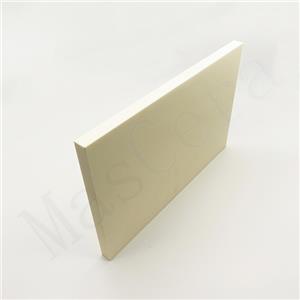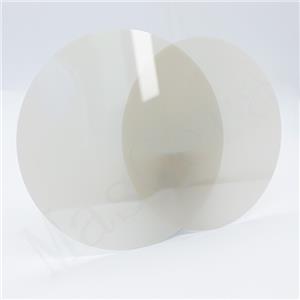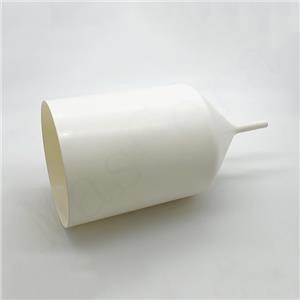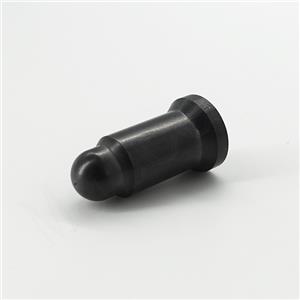Advantages and differences of bearings made of three different materials
1、Metal Bearings
Advantages: The greatest advantage of metal bearings lies in their ease of processing; in terms of processing costs and pricing, they are considerably more affordable compared to ceramic and engineering plastic bearings. Additionally, they exhibit good impact resistance and come in a variety of metal types, suitable for most conventional bearing equipment needs.
Disadvantages: Metal bearings have a shorter lifespan and consume a significant amount of lubrication oil during operation.
2、Engineering Plastic Bearings
Advantages:
(1)The low density and lightweight nature of finished products mean that they require less startup torque during high-speed operation, reducing energy consumption and making them suitable for modern lightweight structural designs.
(2)Engineering plastic bearings are produced through injection molding, resulting in shorter production cycles, faster production rates, lower manufacturing costs, and greater flexibility in design. They can be manufactured in complex structures, providing overall cost-efficiency and suitability for large-scale mass production, thereby enhancing production efficiency and reducing manufacturing costs.
(3)Engineering plastic bearings have excellent self-lubrication properties, making them ideal for engineering environments where lubrication oil cannot be used, such as in food, packaging, and medical machinery. The maintenance cost of these products is low.
(4)They possess properties such as wear resistance, low friction, and anti-seizure capabilities. By adding wear-resistant elements, the friction coefficient can be further reduced, thereby lowering friction heat and maintaining better performance.
(5)Due to the material's inherent properties, engineering plastic bearings offer shock absorption and vibration reduction, significantly reducing operating noise during use and enabling application in special environments.
(6)Engineering plastic bearings have stable high heat resistance and stable dimensional specifications, with temperature variation tolerances ranging from -250°C to 320°C, meeting the operational temperature requirements of most engineering states.
(7)Engineering plastic bearings are highly flexible in preparation, allowing different raw materials to be selected to enhance toughness as needed. This increases toughness, improving the product's impact resistance and fracture resistance. Similarly, stiffness can be increased to enhance hardness standards.
Disadvantages: The main drawback of engineering plastic bearings is their inferior mechanical properties, such as low speeds, low load capacity, and low heat resistance.
3、Ceramic Bearings
Advantages:
(1)Ceramic materials have strong corrosion resistance, making ceramic bearings nearly impervious to corrosion and capable of operating in harsh environments with corrosive media.
(2)Due to the lower density of ceramic rolling balls compared to steel, ceramic bearings are lighter and experience up to 40% less centrifugal force on the outer ring during rotation, significantly extending the product's lifespan.
(3)Ceramic materials have less thermal expansion and contraction than metals, allowing for the appropriate management of clearance between ceramic bearings, which can operate effectively in environments with large temperature fluctuations.
(4)Full ceramic bearings have a fatigue lifespan 10 to 50 times longer than full steel bearings, while hybrid ceramic bearings have a lifespan 3 to 5 times longer than full steel bearings. In terms of longevity, ceramic bearings far exceed metal bearings.
(5)Ceramic bearings possess higher wear resistance and elastic modulus than metal bearings, with lower friction coefficients. Thus, even when the lubrication oil thins or is lacking, the lubrication performance remains superior to traditional steel bearings with standard lubricants.
Disadvantages: The high processing requirements and costs associated with manufacturing ceramic bearings significantly hinder their widespread application.
XIAMEN MASCERA TECHNOLOGY CO., LTD. is a reputable and reliable supplier specializing in manufacturing and sales of technical ceramic parts. We provide custom production and high precision machining for a wide series of high performance ceramic materials including alumina ceramic, zirconia ceramic, silicon nitride, silicon carbide, boron nitride, aluminum nitride and machinable glass ceramic. Currently, our ceramic parts can be found in many industries like mechanical, chemical, medical, semiconductor, vehicle, electronic, metallurgy etc. Our mission is to provide the best quality ceramic parts for global users and it is a big pleasure to see our ceramic parts work efficiently in customers' specific applications. We can cooperate on both prototype and mass production, welcome to contact us if you have demands.





